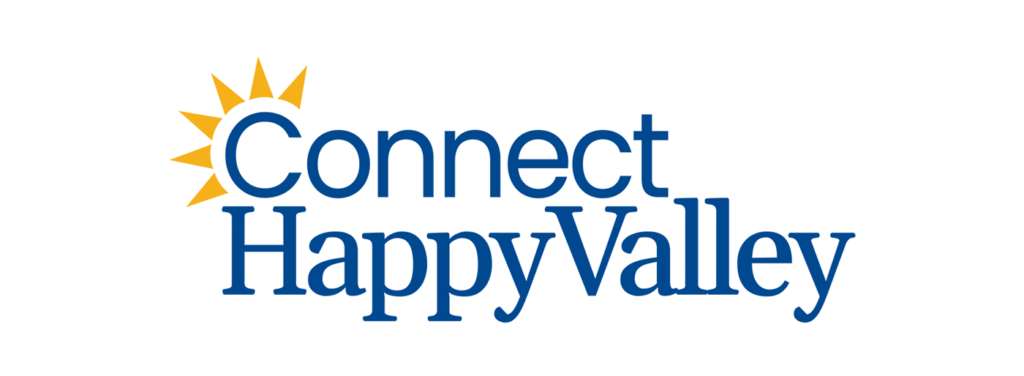Kevin Murray, CEO, Mission Critical Partners
What is your business background, and how did it lead you to Mission Critical Partners?
I’ve spent the majority of my professional life working in the public safety industry because I’ve always had a passion for improving emergency response outcomes. In 2009, the opportunity for me to start my organization solely dedicated to this purpose presented itself, and I leaped at the chance.
What have been your biggest business challenges, and how did you overcome them?
At MCP, our talent is our most valuable asset because we’re in the business of solving complex problems by providing professional services. My biggest challenge of running a talent-driven organization like MCP is finding people who not only share that same passion for improving emergency response, but also can apply it to deliver great value for our clients.
“When facing tough times, which are inevitable, stay focused on your clients and what you’re passionate about in order to overcome them.”

How do you differentiate your business from the competition?
We built a firm that employs more than 100 subject-matter experts that serve the top public safety agencies in the U.S. We offer our clients a breadth of talented people who each bring a depth of experience and an extensive network of resources to every project. The outcome is that we’re able to solve our clients’ most complex challenge with unique, innovative and forward-looking solutions. What really differentiates us most is that our expertise covers every aspect of emergency response instead of being singularly-focused on one individual aspect. More than 90 percent of our clients remain with us from project to project because we help them build a high- performing organization that’s operating at optimal efficiency while realizing maximum value from their investments.
What’s your biggest piece of advice for aspiring entrepreneurs, particularly in the tech field?
Focus your efforts on something your clients’ value that you have passion for and create value by solving your clients’ problems with technology. When facing tough times, which are inevitable, stay focused on your clients and what you’re passionate about in order to overcome them.
What do you think are the biggest challenges in the tech field currently?
There are a lot of players trying to make their mark on their respective industry today. The biggest challenge we all face is delivering valuable solutions that overcome our clients’ problems in an innovative way while creating cost-savings, whether it be in the form of time or money.
What are your future business goals?
We recently took on a capital partner to help us scale our firm in a way that allows us to make significant influence in our market. While I’m very proud of the impressive growth we’ve achieved since 2009, this new arrangement will help us penetrate new geographies and expand our service-offering. It also will create opportunities for us to better serve our clients and offer greater career growth opportunities to our staff members.
Who is your business role model (if you have one)?
I have a group of like-minded friends and CEOs of companies that come together regularly to discuss our problems and share best practices in order to learn from each other’s experiences.
What are you reading currently?
“Mastering the Rockefeller Habits,” by Verne Harnis.
Steve Heinz, Founder and CEO, EnergyCAP
When you first started EnergyCAP, were you an industry forerunner or were you having to differentiate yourself from other potential competitors?
There were no competitors when we started.
Now, have other companies evolved to do the same things?
Yes, we definitely have competitors now, and it’s certainly much more difficult today, because some of those competitors are either large businesses, multi-billion dollar businesses that have a division that does the kind of things that we do…or we see competitors pop up who are funded by venture capital, so they tend to be well funded in the early years. A lot of them don’t survive, but they certainly confuse the marketplace, because it offers options, but we’ve never had a single competitor pop up that has been highly disruptive to our business.
How do you differentiate yourself from the other competitors who may not do exactly the same things or be modeled the same way your company is, but that whittle away at the marketplace?
We try to be very precise, accurate and comprehensive in our marketing. We differentiate ourselves because we’ve been around much longer, we have much more experience than any of them. The trick is to understand the market, which we understand very well because we’ve been in it for so long.
What’s been your biggest business challenge and how was it overcome?
The biggest challenge today is access to capital, because with money you can do just about anything, right? You can hire people you really can’t afford if you’re using someone else’s money. You can launch marketing campaigns that are very expensive, you can go to every possible trade show and you can have a large sales force. You can do a lot of things if bottom-line profitability is not a requirement. You might say “any business has to be profitable.” That’s true, but startups tend to not have that need in the early years because the investors understand, we’re betting on the future and we can’t possibly be profitable in the first few years while building up our client base.
We don’t have any investors because we want to remain independent, but that means we only grow to the extent we have available funds for which we can reinvest in ourselves, which we do, but it limits our growth rate because it’s entirely dependent on how well we’re doing… We’re in an enviable situation that we have no outside investors and we have no debt. At the same time, I recognize that limiting our available capital, which limits our growth, is a challenge because we’re in a technology field and technology is evolving so quickly that you just can’t expect to keep up with it.

“For a startup, you really have to stay focused on bringing that value because that’s what you’re selling and that’s what your customers are buying.”
Is that a challenge you and your team have accepted, (to stay debt free and not have outside investors) as reality, or is it a challenge that you’re looking to somehow overcome and find your way around?
We understand we have to be very strategic and we have to focus on, you might say “profitability,” but we say “growth-ability,” because we’re not trying to make profit to take money out of the business, we’re trying to have a healthy bottom line so we can reinvest that into growth, and that’s part of the culture that we are focusing on.
I have contemporaries in software who have sort of sold out to outside investors, and the most interesting comment they’ve made to me is that they assume bringing in outside investors will help better fulfill their vision for the business.
What one of them said was, “Well, we got that one wrong, because what we realize now, is that when the investors come in, we’re really fulfilling their vision of business, not our vision of the business.” Sometimes that works out well, sometimes it doesn’t work out at all, at least for the team that was there to start with.
What is your biggest piece of advice for aspiring entrepreneurs who are looking to get into a similar field?
Have a very precise focus on the value proposition. They need to understand exactly how their product is going to bring value to the marketplace, because customers are really buying value. Customers figure out very quickly what’s valuable and what isn’t. Some of these competitors are very flashy, but don’t offer a lot of substance. For a startup, you really have to stay focused on bringing that value because that’s what you’re selling and that’s what your customers are buying.
What are your future business goals for the company and you personally?
We’re hoping to build a new headquarters and move in late next year. We’re moving to Boalsburg. It’s been an objective of mine to have a building we can call home, after leasing for 15 years. [We also hope] to expand our market share and stay on top of technology.
What are you reading currently, and what books would you recommend to aspiring entrepreneurs?
I would recommend “Measure What Matters”, by John Dooer. John was an original investor in Google… He has a process…that’s a management foundation that’s been used very successfully in the companies he’s invested in, including Google. The book is quite compelling, because it profiles companies who have used his approach and been very successful. They’ve proven that this is a great way to maintain focus.
Jeremy Frank, CEO, KCF Technologies, Inc.
Tell me about your business background and how it led to KCF
Well, I really started out in research. I did my PhD in mechanical engineering at Penn State and started the company with Dr. Gary Kuteman, who founded the Center for Acoustics and Vibration at Penn State. We started the company just before I finished my PhD.
With KCF, what have been your biggest business challenges, and how did you overcome those as you encountered them?
I would say the biggest challenge, always, for any business, is entering the new market, or, even more difficult, creating a new market that doesn’t already exist. Those are both very difficult things to do, and that’s why so many companies fail and struggle to grow and thrive… To make money you’re either displacing somebody who’s currently making money and stealing that business from them competitively, which is hard, or you’re evangelizing something brand new and convincing a new market or a new customer to pay you for something that they were not even aware they could pay you for or benefit from.
We’ve done both of those…We’ve basically failed and succeeded many, many times. I could give you many examples where we’ve tried to do just that, either tried to compete with an existing player and failed or tried to release something new that was sort of a new market or new opportunity and failed, and overall, I think like most companies that have become successful, the way we’ve succeeded is just by not giving up. You know, we’ve failed just as much as anybody, but we persevered long enough that we are now finding ourselves to be very successful.
As you’ve encountered those other players in the industry that you’ve had to steal those sales away from, how do you find that you’re able to differentiate yourselves from those competitors?
Two things, for us: it’s innovation and technology and it’s people. Our secret sauce is, we’re a high-tech company, but we’re not just a high-tech company that tries to win on the merit of our technologies. We also have built a rapidly growing team that’s fresh and vigorous and friendly and aggressive, and it’s the combination of people, especially engineers with social skills, that combined with technology advantages that allowed us that two-sided sword to slash our way into some pretty big wins.
So what would you say is your biggest piece of advice for entrepreneurs looking to get into a technical, innovative field?
My biggest advice for an entrepreneur trying to get into a technical innovative field, [is] to find a customer and focus on their needs rather than to focus on the thing that you’re developing. It’s really all about the need and your ability to satisfy it, and I think a lot of especially new startups get carried away and forget [that] it doesn’t really matter how good your capability is if nobody wants what you have.
Do you think that’s the biggest stumbling block for new startups that are coming into the industry?
Probably. I think that it’s probably the biggest stumbling block for anybody that’s failing to … execute a new opportunity, grow their business. It’s just human nature; we become inwardly focused, or we become complacent, or some combination of the two… The customer’s need is the only thing that really matters, and it’s your people’s ability to understand and fulfill that need, so I like our team to do that and do that at scale. I think that those two things are what makes it hard for a new company to get off the ground but it’s also why a lot of existing companies become stagnant.
What are you reading currently or do you have a specific book that you recommend entrepreneurs read as they’re starting their venture?
One is a book called “The Ultimate Sales Machine,” by Chet Holmes, and that one is just a really good how-to for how to really develop yourself personally and how to realize that, when you’re starting, nobody is going to pay you any favors and nobody is going to do the hard work other than you, and it gives you… good practical advice for how to create personal discipline, and how to be willing to have those very difficult sales conversations that are necessary when you’re the only one in the room trying to make yourself survive.

“…I think a lot of especially new startups get carried away and forget [that] it doesn’t really matter how good your capability is if nobody wants what you have.”
The other one I would pick is called “Mastery,” by Robert Greene. We do a lot of focused things to develop the people within the company, and “Mastery” is the book that I’ve identified that’s the best fit for when you’re building and growing yourself personally throughout your career. It gives a lot of really amazing historical examples of people that have started with really humble beginnings and become masters, become exceptional.
And then is there anything else that you think our readers should know?
I think something that people misunderstand about entrepreneurship often is, it never gets easy, there is no finish line. For us right now, just finding talented engaged people that want to change the world to join our team [is a challenge]. We have internships available constantly, eight to 10 spots available right now, at an easy location near Penn State. We’re looking for talented people that want to change the industrial world for the better.






